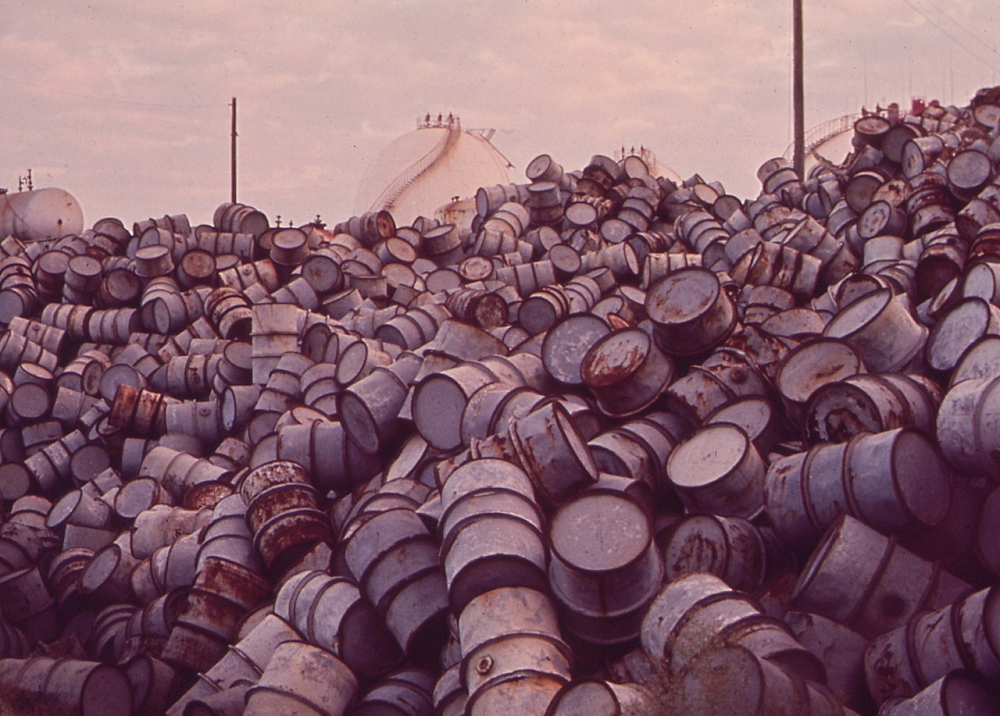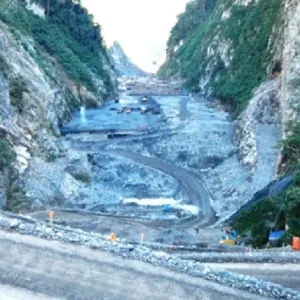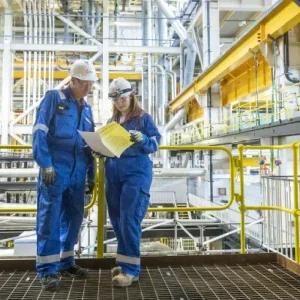
A huge financial crisis is looming for fossil fuel industries, with profits poised to fall by two-thirds amid climate-related investment risks and the impact of coronavirus on global energy demand, according to a new report.
Future earnings derived from international oil, gas and coal reserves could shrink to $14tn – a $25tn drop – warns thinktank Carbon Tracker, which suggests the time of peak fossil-fuel demand may have now passed.
This financial decline may have significant implications for the wider global economy, given the sheer size of the fossil fuels system which accounts for a quarter of the total value of global equity markets – with companies across the sector worth $18tn – and physical supply and demand infrastructure worth $32tn.
Acceleration beyond peak fossil-fuel demand adds to existing pressure on future profits
Carbon Tracker energy strategist Kingsmill Bond, who authored the research, said the findings demonstrate the “decline and fall” of the carbon industry, with the impact of Covid-19 accelerating the move beyond peak demand.
He added: “This is a huge opportunity for countries that import fossil fuels, which can save trillions of dollars by switching to a clean energy economy in line with the Paris Agreement.
“Now is the time to plan an orderly wind-down of fossil-fuel assets and manage the impact on the global economy rather than try to sustain the unsustainable.
“Technological innovation and policy support is driving peak fossil-fuel demand in sector after sector and country after country, and the Covid-19 pandemic has accelerated this. We may now have seen peak fossil fuel demand as a whole.”
Carbon industry is undergoing ‘structural change’
The report cites Royal Dutch Shell’s recent dividend cut, bankruptcies in the US shale industry and Repsol’s decision to write off €4.8bn ($5.4bn) of assets last year as part of its net-zero strategy all to be “symptoms of an industry undergoing structural change”.
It adds that the growth of renewable alternatives competing more frequently with fossil fuels on both price and scale, as well as an expected 2% year-on-year decline in global demand for carbon products in line with the Paris agreement, will serve to put huge pressure on existing financial models within the industry.
“Many companies will be forced to write off assets, cancel investment or even go bust. Even companies which remain profitable will make far less money than before,” the analysis states.
“Investors will be hit because as returns fall, there will be less capital available for dividends and interest payments. Markets might sell down stock in anticipation of peak demand long before assets are written down.”
Many countries around the world have begun devising climate policies to penalise heavy emitters in the push for net zero, attaching an extra layer of risk to investment in an industry that is already under significant pressure to decarbonise.
Demise of fossil fuels could destabilise developing economies
Countries whose economies are heavily dependent on export revenues from carbon products – particularly less-developed petrostates such as Venezuela, Ecuador, Libya, Algeria, Nigeria and Angola – face a risk of financial instability as these trends play out over the coming years.
It is an issue recently highlighted by the International Energy Agency (IEA) and Opec, which warned underdeveloped oil-exporting nations would be most impacted by the recent collapse in oil prices amid the pandemic, highlighting the need to diversify.
The IEA recently suggested coronavirus is expected to trigger a $400bn annual decline in investment across the entire energy industry during 2020, with the oil and gas sector accounting for the deepest cuts – almost a third, year-on-year – and spending on coal falling by a quarter compared to 2019 levels.
While renewables will also take a hit, the slowdown will be less severe, according to the watchdog, and with strong calls emerging for a “green transition” to be built into post-pandemic economic recovery packages, there is significant potential for new policy introductions that will further squeeze the fossil fuels industry.






